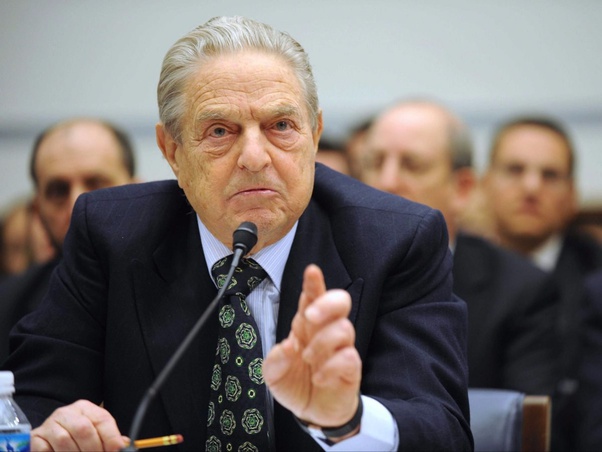Defeating China’ is wishful thinking from Soros

By Zhang Yugui
After George Soros wrote an op-ed piece in the Wall Street Journal saying his interest in defeating China “goes beyond US national interests,” some Chinese media outlets reported the billionaire financier attempted to short sell Hong Kong stocks recently when the market was hit hard by the city’s ongoing riots. It is worth considering why Soros is so obsessed with defeating China.
Soros has played an inconsistent role in the financial market and changing society. He is a financial predator who has been influenced by liberal philosophy and market Darwinism. He has not only shown the greediness typical of Wall Street financial capitalists, but has also played the role of ideology defender.
He is a profiteer on the equity market. He made a profit attacking UK’s currency; he destroyed the value of the Thai baht, triggering the Asian financial crisis; and he profited from the short sale of Japanese yen.
He is also an unorthodox capitalist dreamer. With his great wealth, he spreads US ideologies and values to the world through his Open Society Foundations. The organization allegedly fueled political changes in countries such as Georgia, Ukraine and Kyrgyzstan. It has also attempted to stir up color revolutions in multiple countries. Soros himself, at the same time, is trying to amplify his individual influence in the world political system.
George Soros does not always see eye-to-eye with US-style capitalism. However, it is still those nations and forces that defy rules made by the West that Soros cannot put up with the most. A strong and growing China is a typical example of what Soros wants to see the least.
Soros aimed to cause financial panic in Hong Kong before the city returned to the motherland in 1997. Taking his chance, Soros waged an attack that resulted in volatility in Hong Kong’s stock and foreign currency markets. With strong backing from the central government, the Hong Kong Special Administrative Region government decided to weigh in and successfully defended the city’s financial market.
Now 21 years have passed, and it has been 18 years since China became a member of the WTO. The country has rapidly developed beyond a $10 trillion economy. The change in the power balance between China and major capitalist countries has exceeded Wall Street financial capitalists’ expectations.
From their perspective, the US showed China the way onto the world economic stage; They taught Chinese financial practitioners about investment. But in recent years, global economic centers and wealth have been shifting from the US to Asia. Economic growth is more vigorous in China. The center of global wealth allocation and assets-pricing may move from Wall Street to Chinese cities such as Shanghai and Shenzhen in the future.
China is actively constructing and improving both regional and global trade and investment rules. International endeavors such as the Belt and Road Initiative, the Asian Infrastructure Investment Bank and the New Development Bank have continued to grow. China is challenging US-led financial and trade mechanisms. It is not accepted by profiteers like Soros who have a sense of superiority.
Soros and his ilk are astonished by China’s improvements in trade volume, rule adoption, global value chain position, industry competitiveness and comprehensive national strength after joining the WTO. They believe that the “China path,” which is rooted in Chinese history, culture and institutions, will become a vital force that will undermine current global order if left unchecked. This situation will be like a fishbone stuck in the throat for the Western world.
Slowing down the pace of China’s rejuvenation, by creating unrest in Hong Kong or instigating color revolutions, has become the goal of speculators like Soros. But the world’s economic and financial development since the beginning of the 21st century has proven that no force can short sell China, nor can any force hinder its march toward the revitalization of the Chinese nation.



